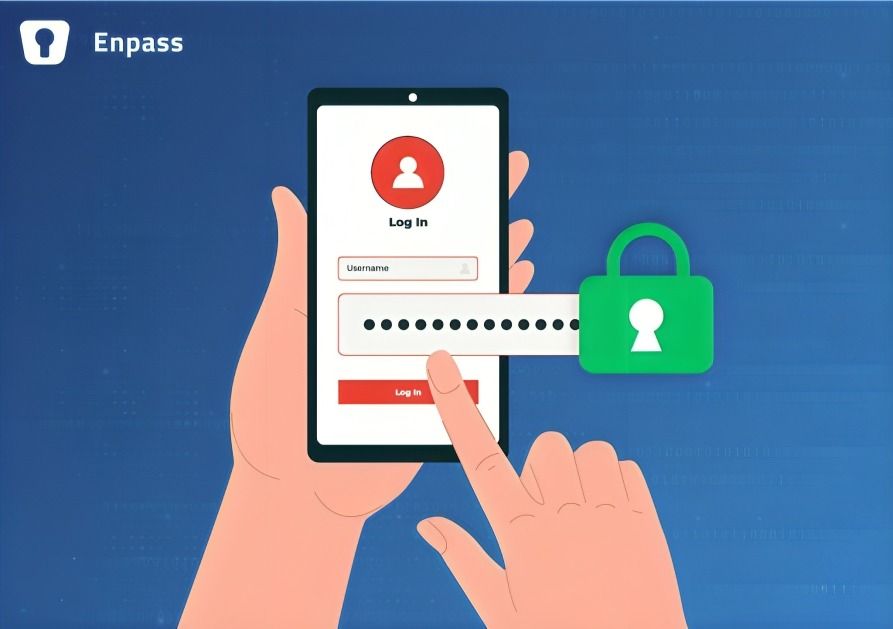
“
In today's digital world, knowing how to Keep Personal Information Private On the Internet is crucial for your online safety. With increasing cyber threats and data breaches, safeguarding your details has never been more important. This blog outlines 20 essential facts to help you understand the best practices for protecting your identity and privacy while browsing, using social media, or conducting financial transactions online. By following these tips, you can enjoy a more secure online experience and reduce the risks of identity theft or cybercrime. Let's explore the key ways to Keep Personal Information Private On the Internet.1
1
”
Protecting personal info starts with you! Sharing details like bank accounts or your Social Security number online can lead to identity theft and fraud. Stay cautious to keep control.1
Using strong, unique passwords for different online accounts helps protect your personal information from being hacked. Passwords should include a mix of letters, numbers, and symbols to make them harder to guess.2
Data privacy is crucial for business owners. A breach could cost $8.64 million and damage customer trust. Protecting personal data safeguards both compliance and your brand's reputation.3
Cybercriminals can use publicly available information to create fake accounts in your name. By keeping personal details private, you reduce the risk of these impersonation scams, which can be damaging.4
Always adjust your privacy settings on social media and apps. These settings help control who can view your personal information, posts, and activities, limiting exposure to strangers and potential scammers.5
Cybercriminals disguise phishing scams as legitimate messages. Watch for clues like unusual sender emails or subtle spelling mistakes—small red flags that can expose the scam. Stay alert!6
Avoid using public Wi-Fi for sensitive transactions like banking or shopping. Public networks are often insecure, making it easier for hackers to intercept personal information shared over these connections.7
Always set your devices to lock automatically when idle. Hackers can sneak in if your device stays open. Choose the quickest option for fast biometric unlocks like fingerprints or facial recognition—30 seconds or immediately!8
Avoid sharing your location in real-time on social media, as this can alert others to your exact whereabouts. Instead, wait until you've left the location before posting, to maintain your privacy and safety.9
If you suspect someone’s accessed your accounts or stolen your info, head to IdentityTheft.gov. It offers clear steps to check for identity misuse and guides you through reporting and recovering, helping you reclaim control of your life!10

Two-factor authentication (2FA) is an additional security layer that protects your accounts. Even if someone knows your password, 2FA requires a second verification step, such as a text message code, to access your account.
Be mindful when filling out online forms. Some websites ask for unnecessary personal information that could be misused. Only provide the required details and ensure the site is trustworthy before sharing anything.11
Sharing photos online can unintentionally expose personal information through metadata. This hidden data can include location information or device details, so it's important to remove metadata before posting photos.12
Before sharing personal info on a website, check for a lock icon and "https" in the URL—it means the site is secure. Look for signs like a privacy policy, contact details, or security badges to ensure trustworthiness!13
Email addresses are a common target for spammers and hackers. Consider creating a separate email for online shopping or subscriptions, and keep your email private to avoid spam and phishing attempts.14
Social engineering attacks trick individuals into revealing personal information by posing as trustworthy entities. Always verify the identity of anyone asking for sensitive details, especially in unsolicited phone calls or emails.15
Personal data sold on the dark web can be used for various fraudulent activities, including identity theft and credit card fraud. Keeping your information private minimizes the chances of your data being sold illegally.16

Children and teenagers are particularly vulnerable to online predators. It's crucial to educate young users about the importance of keeping personal information private and not sharing it with strangers online.
Deleting old accounts you no longer use can prevent your personal information from being exploited. Unused accounts are often forgotten but may still hold valuable data that hackers could access.17
Your Social Insurance Number (SIN) is key to your privacy, as it can unlock sensitive information. Only share it for income-related reasons. Be cautious—just because someone asks for your SIN doesn't mean you must give it.18


